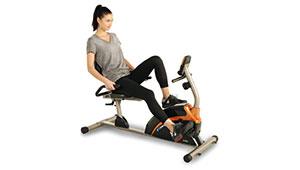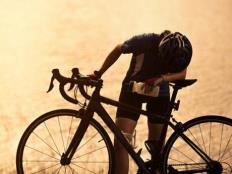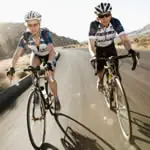Despite the weather, persevere in these practice rides. You hope for sunshine and favorable winds, but the event will be held whatever the weather. By doing these rides you will be confident that you can ride in the terrain, with your gear and in any weather.
Wicks did a 129-mile rehearsal ride in 9:15 two weeks before her 12-hour race.
Race Plans
Before your race create three scenarios that include everything that you learned in your rehearsal rides and anything else that might be important for your specific event:
- Great ride. You have great legs, you're in a good group to ride with, favorable winds, you're eating and drinking well, and you're having a great time.
- Expected ride. You feel like you do on your long training rides: legs are okay, nutrition is working, decent weather and you've found folks to ride with part of the time.
- Slow ride. Your legs feel tired earlier than you expect, perhaps you have an upset stomach, you have several flats and are dropped by groups and the last half of the ride is into a strong headwind.
More: 3 Survival Tips for Rookie Randonneurs
If your event has a finishing time cutoff, then your slowest scenario has to get you to the finish with time to spare. If there are intermediate controls with opening and closing times, then your scenarios need to fit within those time windows. If you are riding an event for a personal best, then your scenarios need to bracket your hoped-for finishing time. The scenarios give you a sense of what to expect and what equipment you might need, for example, if you might have to finish in the dark.
The scenarios can be as elaborate as detailed spreadsheets or as simple as notes on the cue sheets.
Test EverythingWhether you train on the event course or practice on similar terrain, ride with all of the gear that you will carry during the event and test your bike for comfort, your clothing and your planned nutrition.
More: 6 Reasons Cyclists Should Start Strength Training
TaperYou can't get any fitter in the final week(s) before an event. Training is over! The two weeks before the event you taper, you recover fully from all the hard training while just maintaining your fitness:
- Final rehearsal ride: Two weekends before the event do your final rehearsal ride.
- Intensity: Two weeks before the event ride the same number of hard workouts per week that you've been doing in training, but make the workouts only half as long. One week before the event ride just one short intensity ride.
- Endurance: The weekend before the event go out for just 2 to 3 hours and concentrate on riding your race pace, not as hard as you can on a short ride.
- Active recovery: Each week do several active recovery rides.
- Rest: Although you have a lot to do, get a full nights sleep every night. You may not sleep well the night before the event, but if you are well rested that won't matter.
- Eat carbs: The last 3 to 4 days before the race, increase the proportion of carbs in your diet while reducing the amounts of protein and fat. You may gain a little water weight as you store additional glycogen from the carbs--don't worry; you'll use the water during the event.
- 2
- of
- 5
About the Author









Discuss This Article